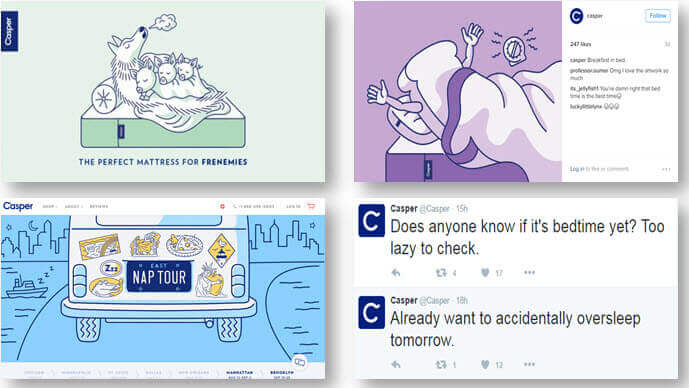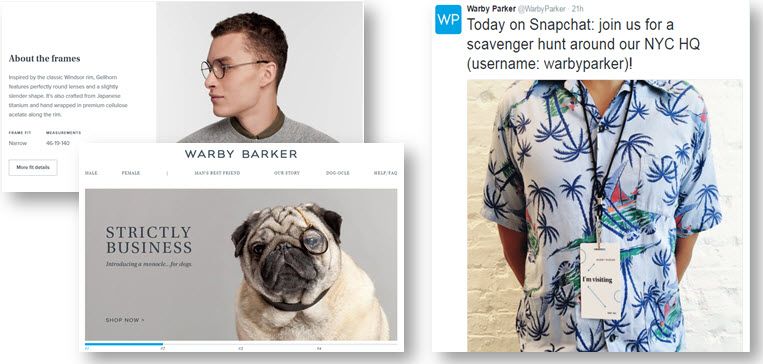
Navigate an unpredictable landscape with actionable, data-driven strategies tailored for your business from the brand down to the local level.
Ask any millennial or Generation Z what is the one thing they can’t live without (personally I would choose air!) and you’ll undoubtedly receive the same response: a mobile phone. The reality is that these audiences have a need to remain connected every second of the day to fuel their personal interests, connect to their favorite social media sites and stay abreast on world events. For this demographic, a mobile device is not just another screen in their life, it is the very lifeline to the things that matter most to them, delivering them information and influencing their decisions every second of the day. So how does this compare to other generations?
With 90 million millennials in America, and 2.5 billion worldwide, they represent a huge emerging consumer segment that is very different from their parents. They are the most educated cohort to date and they have more spending power than their predecessors. millennials are also impatient and fickle. They are technically savvy. And they are not afraid to voice their opinions. Millennials are also in the workforce (55 million of them) so their ability to purchase in a B2B role is influenced very much the same way as when they put on their B2C hat. That’s why for enterprise brands, especially those with local footprints, it is essential to reach millennials and Gen Z in ways that influence their decisions most.
According to the Center for Media Research, a brand is three times more likely to successfully convert a sale if it is in the consumer’s initial consideration phase. So what’s really important to your enterprise’s local presence is to ensure the brand is outsmarting the competition in the search game because over 80% of local searches begin on a mobile device. Research also shows that on average millennials check their mobile phones at least ten times an hour demonstrating that they are always looking for something and are ready to buy on an impulse. Millennials value efficiency and speed. They don’t want to jump through hoops when searching or making a purchase (hence the ‘birth’ of the one-click buy). Therefore, you must be in the right place, at the right time, delivering content that is expected in a way that is easier to access than your competitors.
Brands are starting to capitalize on the disruptive nature of this generation and those that are embracing new strategies are distancing themselves from the competition. Two brands that come to mind are Warby Parker and Casper.
Casper
Casper had the lofty goal of turning a normally labour intensive exercise (purchasing a mattress) into an easy online shopping experience. They felt that there was an untapped market in millennials as their needs fell between budget mattresses (usually reserved for University students) and premium products (traditionally purchased by older individuals with significant disposable income). They created a quality product at a fraction of the cost and used creative marketing to engage with their audience in the moment with tailored content including:

Warby Parker
Warby Parker wanted to dethrone the giants in the retail optical industry and needed to find a creative way to get their messaging across on a small budget. They too were disrupting traditional channels and targeting millennials. In order to get the word out they conducted the following activities:

Subscribe to our monthly newsletter.
Stanley Bergman, Chairman and CEO, of Henry Schein, recently offered his perspective about how Generation Z will change the world of business as they are the first generation that has not lived without mobile devices or the Internet. Both of these generations are accelerating at the speed in which they consume information, and that in turn has direct impact on how brands deliver on meeting expectations. Marketers and technology companies will need to leverage millennial behavior to build momentum with subsequent generations as they are going to play an even greater role in shaping the future of commerce.
Your brand must be there in the flash of a moment, and offering deep and related content, that matches the consumer’s search intent, precisely when they are looking for products or services that you offer, and where to find them.
(With contributions from Jon Urbanski)
Interested in finding out more about how to market to millennials? Follow DAC on twitter at @DAC_Group!
Contact DAC today to find out more!
Navigate an unpredictable landscape with actionable, data-driven strategies tailored for your business from the brand down to the local level.
Navigate an unpredictable landscape with actionable, data-driven strategies tailored for your business from the brand down to the local level.
Navigate an unpredictable landscape with actionable, data-driven strategies tailored for your business from the brand down to the local level.
Subscribe to our monthly newsletter.